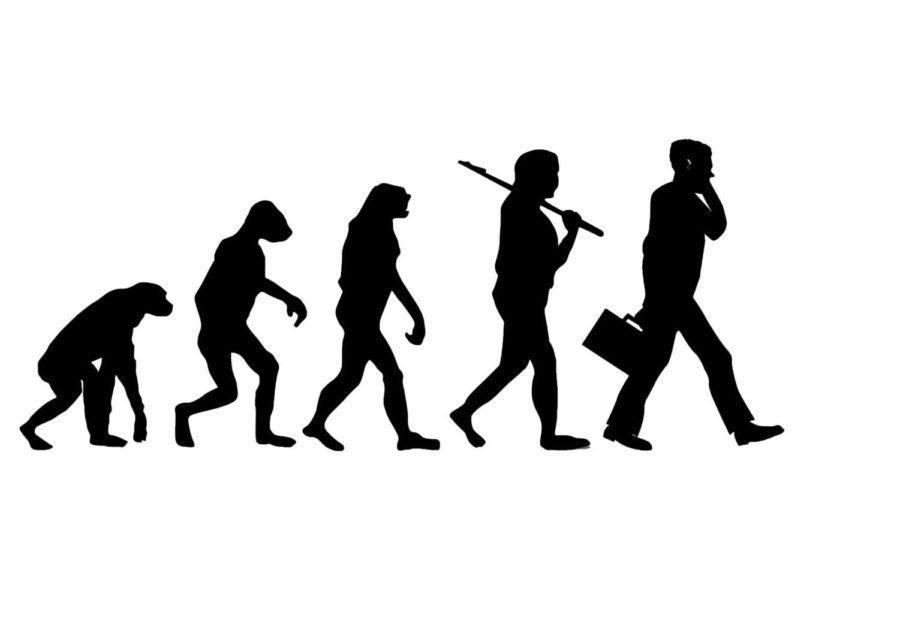Brown: Evolution is not atheism
Scientists tell us that the selective forces of evolution have changed the human population over time, but less than 40 percent of Americans believe in Evolutionary Theory.
February 13, 2013
The theory of evolution carries a lot of baggage. While there were a few individuals to postulate some form of evolution was at work long before Charles Darwin, it was only with his “On the Origin of Species” that evolution as a scientific theory received much attention. Since its inception, the work of Darwin, and the work all of the evolutionary biologists to come after him, has been attacked by scientists and nonscientists alike.
There are many reasons why the theory of evolution has been questioned, and some of them are entirely appropriate. These deserved skepticisms arise from the sheer weight of Darwin’s conclusions. In any scientific field, a theory as overarching and as revolutionary as evolution is to biology needs to be very carefully looked over for any potential flaws.
Some reasons for questioning and even outright denying the theory of evolution, however, are not appropriate skepticism, but rather are arguments made from ignorance and fear.
These arguments tend to arise from the misconception that Darwin’s work and the theory of evolution claim that there is no God. I have read “On the Origin of Species,” and I can assure anyone who cares to listen: This is not true.
At its core, the theory of evolution as proposed by Darwin holds two main principles to be true.
First, there exists descent with modification. This does not mean that a monkey can turn into a human. This means that in every generation, there is the chance of the offspring being slightly different than their parents genetically. This can occur, for example, through small random mutations in DNA, or through a combination of parents’ DNA that produces something a little different.
Second, there exists natural selection. This essentially means that the organisms that are best able to stay alive and reproduce will have a better chance to pass on their genetics to offspring. Like anything to do with living beings, this is not absolute. Being more fit only provides a greater chance of survival and reproduction.
These two principles, along with an almost unfathomable amount of time, combine to form the mechanism we think of as evolution. They do not claim in any way, shape or form that life was not created by a divine being.
Some ignore this, and refuse to believe in evolution on religious grounds. This attitude is well and good for an individual — that is what beliefs are — but it can become detrimental when falsehoods are created to dispute the theory of evolution.
Examples abound, but some notable cases are claims that suggest Darwin himself did not believe in the theory of evolution. One of the longest-running attacks on evolution is the claim that Darwin explicitly states in “On the Origin of Species” that evolution is “absurd.”
This stems from a few sentences in which Darwin recognizes how crazy it sounds to say that the eye, which is so perfect, could have been created by natural selection. However, Darwin goes on to say that in the face of the existence of many gradual changes in eyes — across many organisms — the existence of inherited variation, and the existence of a use for those variations, the idea of natural selection forming our eye doesn’t sound so crazy after all.
Answersingenesis.org even recognizes this, and denotes the “doubtful Darwin” argument as one Christians should not use.
Another often invoked argument against evolution is that Darwin realized how foolish he had been to question God and repented on his deathbed, denouncing his work. This story comes from a woman named Elizabeth Cotton, known as Lady Hope, who says she spoke with Darwin shortly before his death.
While it is very probable that Lady Hope did see Darwin before his death, James Moore is skeptical of her account the meeting in his 1994 book “The Darwin Legend.” No one else has come forward since Darwin’s death with any evidence that he renounced his views, and three of his children publicly rebutted Lady Hope, claiming the story was false.
The reasons for these attacks on evolution are simply misguided. No one needs to feel that their religion or beliefs are being attacked by evolution. The theory of evolution is not a denouncement of God. It is simply a collection of observations and ideas that attempts to explain a small part of how the world works.
——————————————————————————————-
Phil Brown is a senior in political science, biology and environmental studies from Emmetsburg, Iowa.

















